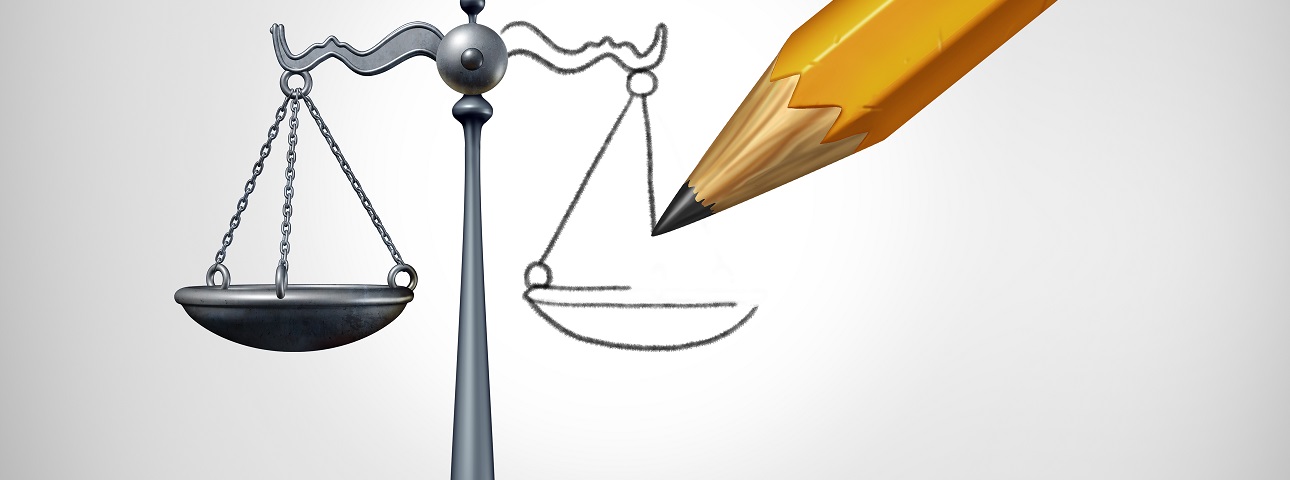Last Monday night, as hundreds of thousands of protesters took to the streets all over the country, the Knesset voted to end the Israeli Supreme Court’s use of the “Reasonableness Standard.” Lost in the passionate debate was the question of what that actually means. Is the move a necessary curtailing of the Supreme Court’s “excessive power,” as proponents claim? Or is it, as some fear, the end of Israel as a democratic state? Here’s what you need to know, from a lawyer’s point of view. This is not an opinion for or against the new law, but a clarification of what’s actually happening beyond the public hype.
To begin with, Israel has no constitution. That one piece of critical context must begin any conversation on Israel’s judicial controversy. By contrast, the United States does have a constitution, and it is the primary legal force in America; all other branches of government derive their power from the US Constitution, and the court system polices it, striking down as “unconstitutional” any legislation or executive order that violates it. This is a process called “judicial review,” and it is a key component of what Americans call “checks and balances.”
Without a constitution, there can be no ruling that legislation or policy moves are “unconstitutional.” How then, does Israel’s Supreme Court provide the necessary checks and balances to ensure that Israel’s democracy will endure in the face of expected partisan interests and natural human fallibility?
With typical Israeli “chutzpah,” creativity, and also precedent derived from British common law, the Supreme Court essentially empowered itself to strike down any executive orders or administrative decisions that it deems “unreasonable.” (This does not relate to overturning actual laws, which is done via a different mechanism.) Prime Minister Netanyahu and other proponents of the reform refer to the Reasonableness Standard as an excessive and unstructured power in the hands of unelected officials — and in a vacuum, this would seem to be true. Yet Israelis do not live in a vacuum, and in the real world, the Reasonableness Standard has long functioned as an imperfect solution to an imperfect system.
In short, the Court does have somewhat unstructured power, but so does the rest of the government. Until now, these two “problems” have somewhat sloppily, but effectively, canceled each other out: the very “balance of chaos” that characterizes the miracle of Israeli society.

So what happens now?
Like so many Israeli things, the very chaos of Israel’s system might just be its secret superpower, and could lead the court into a number of different paths.After being publicly silent on the matter, the Supreme Court has just agreed to consider a number of petitions to strike down the Knesset’s recent move; this will be the Court’s turn to not only speak out, but to make a legal ruling.The Court might rule Monday’s law ineffectiveab initio(from the outset) by concluding that it violates one or more of Israel’s 13 “Basic Laws,” which act as a kind of “substitute constitution.” This would be complex, as Monday’s law is itself an amendment to a Basic Law. However, at present, the Court has the power to strike down even a Basic Law, and this power is (not surprisingly) the subject of an entirely separate bill within the judicial reform push.
Another possible path lies in an interesting loophole in Monday’s law: it strikes down only the “Reasonableness Standard,” but does not preclude the Court from exercising exactly the same judicial review under a different name. For example, the Court could simply call an administrative decision or executive order “undemocratic” or any other similar word, and then carry out the same judicial review function under that new name. This would be a bold and novel approach, and would doubtless be met with opposition, but “bold and novel” sometimes happen in democracies, especially young ones like Israel.
Finally, the current coalition may indeed implement a variety of executive orders and administrative decisions without the “reasonableness” review that the courts provided until now. Yet it remains to be seen exactly what new actions the current government will attempt, and exactly how the courts, the ministries, and other official actors will respond.
Democracies mature over time. In its first 100 years, the United States saw the infamous Sedition Act, an actual gun duel between the Vice President and the Secretary of the Treasury, and of course, secession and the American Civil War. In its first 200 years as an emerging democracy, Britain faced several civil wars and rebellions, as well as the society-wrenching Reformation. At only 75 years old, Israel is actually unusually stable compared to the turbulent early histories of most democracies: Israel’s arguments have been passionate but peaceful, and its laws are still evolving. While it is completely appropriate to feel care and concern over Israel’s evolution, it is not yet time to assume catastrophe.
If you’re one of our supporters, thank you so very much for making this work possible. And if you’re new here, please consider helping to make our growth possible with a tax deductible donation by clicking HERE.
This article was originally published by The Algemeiner on July 27, 2023
Log in to comment.




Thank you Dan. Very helpful for understanding the situation.
“Very complex” as a wise CEO once said.
Very well written. This is a difficult subject to explain clearly, with balance. And you did it.
Above all, thank you for the ideas about some solutions.
Keep up the good work. Sei gesund.